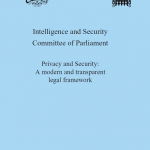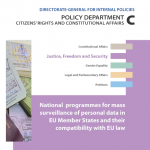
The leak by Edward Snowden of stolen intelligence material in June 2013 led to allegations regarding the UK Agencies’ use of intrusive capabilities – in particular those relating to GCHQ’s interception of internet communications. This Committee investigated the most serious of those allegations – that GCHQ were circumventing UK law – in July 2013. We concluded that that allegation was unfounded. However, we considered that a more in-depth Inquiry into the full range of the Agencies’ intrusive capabilities was required – not just in terms of how they are used and the scale of that use, but also the degree to which they intrude on privacy and the extent to which existing legislation adequately defines and constrains these capabilities.

